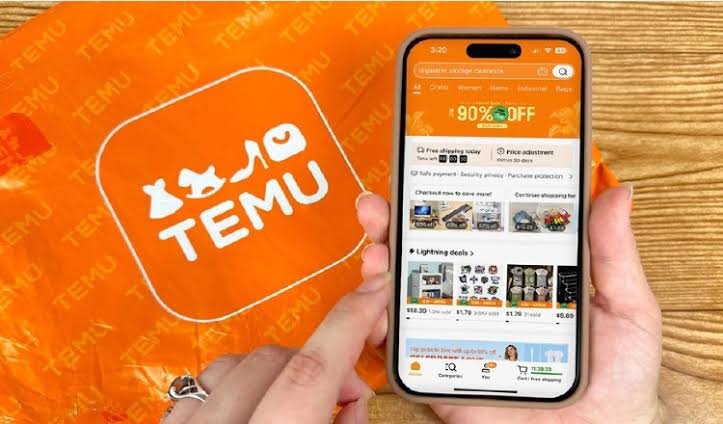Temu’s Everywhere. But What Exactly Is It?
You’ve seen the ads. Heard the name. Maybe even downloaded the app. Temu came out of nowhere—and suddenly it’s one of the most downloaded shopping platforms on the planet. But behind the flashy prices and viral marketing, users are asking one simple question:
Can I really trust Temu?
Let’s unpack what Temu is, why it exploded globally, and whether it’s worth the hype—or the risk.
What Is Temu?
Temu (pronounced tee-moo) is an online marketplace owned by Chinese giant PDD Holdings, which also owns Pinduoduo, one of China’s largest e-commerce platforms. Temu launched in the U.S. in 2022 and spread like wildfire thanks to:
- Aggressive pricing
- Free shipping
- Super-cheap deals
- Heavy advertising on TikTok, YouTube, and TV
But this ultra-low-cost model has raised red flags across the industry.
Why Is Temu So Cheap?
Here’s the business model in a nutshell:
- Factory-to-consumer model: Temu cuts out middlemen, selling goods directly from manufacturers.
- Bulk shipping from China: Products are shipped internationally, not warehoused locally.
- Ultra-low marketing cost per acquisition: Influencers, app installs, and referral bonuses did the early heavy lifting.
And it’s working. Temu became one of the top free apps in over 40 countries, including the U.S., Canada, Australia, and the U.K.
But at What Cost?
When a shirt costs $2 and headphones $1.99 with free shipping, it’s natural to ask: what’s the catch?
Here’s a comparison of typical concerns:
| Concern | What Critics Say | Temu’s Response |
|---|---|---|
| Data privacy | Apps may collect excessive data | Temu says data use is transparent and compliant |
| Product quality | Mixed reviews; some say items don’t match images | Buyers have return options and support |
| Shipping delays | Can take 7–25 days from China | Temu offers tracking and free returns |
| Environmental cost | High carbon footprint from global shipping | Not directly addressed by Temu |
Real Users Are Torn
Scroll through Reddit, YouTube, or app reviews and you’ll find two types of users:
- “It’s the best deal I’ve ever found”
- “It feels too sketchy—I deleted the app”
Temu is addictive. It gamifies shopping, uses reward systems, and offers constant “limited time” discounts. Some compare it to Wish.com or AliExpress, but faster and more modern.
Still, there are concerns about the “surveillance capitalism” model many apps now follow: tracking your behavior to tailor and push product recommendations, sometimes at the expense of your privacy.
Who Should Use Temu?

Temu can be a great option if you:
- Want trendy, budget-friendly items
- Are okay waiting for international shipping
- Understand you may “get what you pay for”
It’s not ideal if:
- You need items urgently
- You want brand-name, verified quality
- You’re deeply concerned about data privacy or ethical sourcing
How It Compares to Other Budget Platforms
| Platform | Shipping Time | Pricing | Product Quality | Trust Factor |
|---|---|---|---|---|
| Temu | 7–25 days | Ultra cheap | Mixed | Still building reputation |
| Amazon | 1–5 days | Higher | Generally high | Very high |
| AliExpress | 10–40 days | Cheap | Varied | Moderate |
| Shein | 7–15 days | Cheap (fashion) | Better for clothing | Strong brand in fashion |
Is Temu Safe?
Temu’s app is available on the App Store and Google Play, and it has not been banned in any major market. However, there are investigations and watchdog groups monitoring apps linked to Chinese companies over data handling practices.
It’s important to read permissions before installing. If an app asks for location access, contacts, or other sensitive info it doesn’t need, consider that a red flag.
| Source | Key Insight | Link |
|---|---|---|
| CNN | Temu faces scrutiny over data practices | Read |
| Forbes | How Temu grew faster than Shein in the U.S. | Read |
| TechCrunch | Concerns over Temu’s aggressive ad spend | Read |
| BBC | Chinese shopping apps dominate downloads | Read |
Final Take
Temu’s rise isn’t an accident—it’s part of a new wave of borderless, budget-first consumer platforms that promise more for less. And while many shoppers are hooked, others are cautious.
If you’re going to try it, do it with your eyes open. The deals might be real—but so are the trade-offs.
More Stories
Amazon Great Freedom Festival 2025: What to Grab and What to Skip
Flipkart Freedom Sale 2025 – It’s Live Now: Your Full Deal Breakdown
Mohammed Siraj: The Silent Storm Behind India’s Gritty Fightback